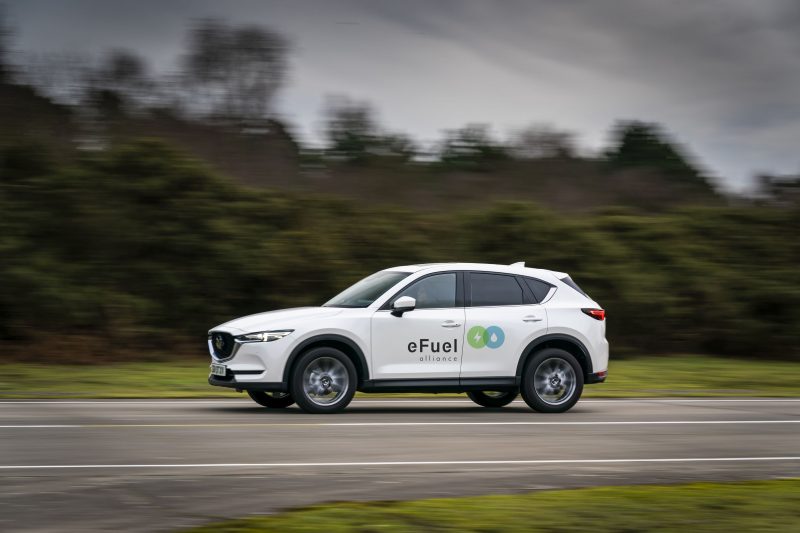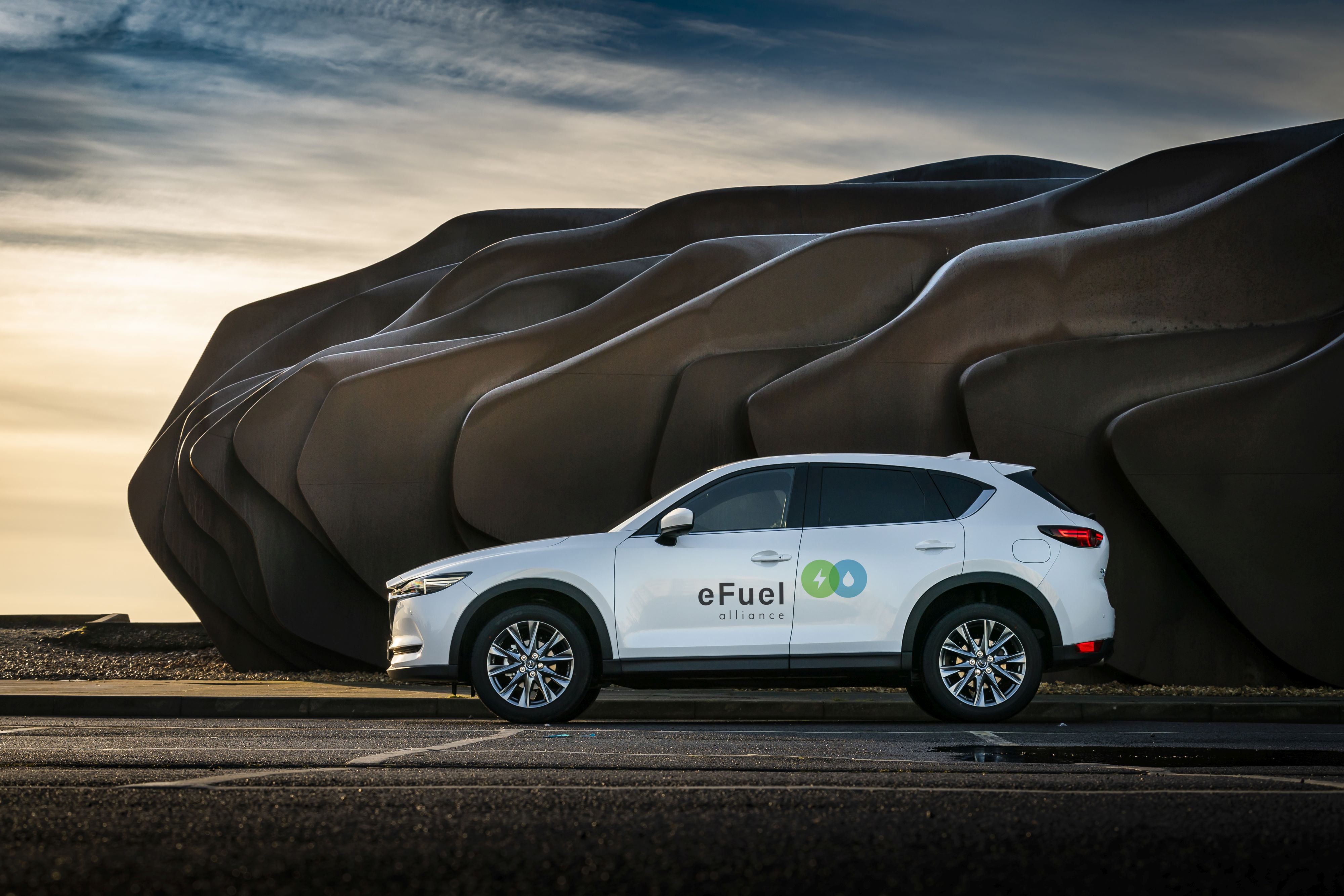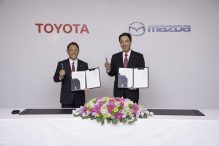Mazda today announced that it has become the first automotive manufacturer to join the eFuel Alliance.
The Alliance brings together organisations and interested parties that support the goal of establishing and promoting CO2-neutral e-fuels and hydrogen as a credible and real contributor to reducing emissions in the transport sector.
Mazda has always been a strong advocate of a multi-solution approach, that combines different technologies, as the best way forward to reduce emissions. Electrification is a key pillar within Mazda’s multi-solution strategy and by 2030 all Mazda vehicles will be electrified. However, many vehicles will continue to have an internal combustion engine.
Throughout its history Mazda has been committed to developing cars and powertrains that are meeting the needs of its customers and this passion remains. These already include improvements in the efficiency of conventional powertrains, the electrification of the range, the wider uptake of renewable fuels as well as digital and connected tools that improve fuel efficiency.

Together with the eFuel Alliance and its members, Mazda supports the establishment of a mechanism that takes into account the contribution of renewable and low-carbon fuels[1] for emissions reduction of passenger cars and will contribute to the decision-making process now that the EU is reviewing its climate legislation.
Commenting on being the first manufacturer to join the Alliance, Wojciech Halarewicz, Vice President Communications & Public Affairs at Mazda Motor Europe GmbH said:
“As an industry we must reduce emissions as much as possible. And to do this we must not ignore any of the available routes at our disposal. Greenhouse gas emissions and climate change are, by nature, a global and complex issue requiring an integrated approach. All sectors and industries must play their part and, above all, they must have the opportunity to share any positive options to achieving the climate goals.”
“We believe that with the necessary investment, CO2-neutral e-fuels and hydrogen will make a credible and real contribution to emissions reduction – not only for newly registered cars but for the current fleet. This would open up a second and faster route to achieving climate neutrality in transport, hand-in-hand with continued electrification. As the EU will review its regulation on CO2 standards for cars and vans later this year, this is the chance to make sure the new legislation enables both electric vehicles and vehicles running on CO2-neutral fuels to contribute to car manufacturers’ emissions reduction efforts.”

Ole von Beust, managing director of the eFuel Alliance added:
“Supporting and driving the understanding of climate protection policies that ensure fair competition among different technologies is the key goal of the eFuel Alliance. The next two years will be decisive as the European Commission will revise the main climate policy regulations. These should include a mechanism in the car legislation that recognises the contribution low-carbon fuels can make to achieving the emission reduction targets. Bringing together interested groups and organisations across all sectors involved will be crucial. That’s why we look forward to Mazda, with their long history in automotive innovation, being a strong partner in the eFuel Alliance.”
[1] synthetically produced CO2-neutral liquid fuels based on hydrogen and CO2 as well as biofuels that meet fossil fuel quality standards and can be blended / drop-in fuels




